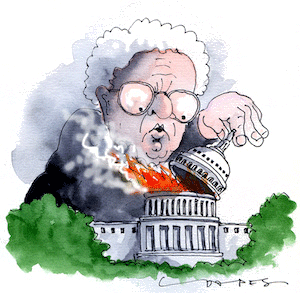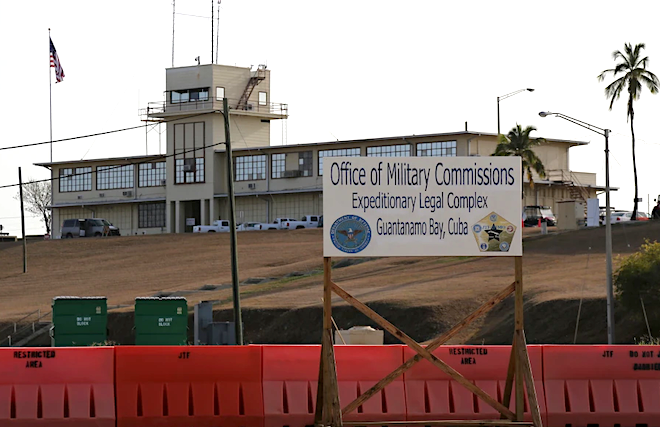Stealing the presidency
Murdoch discovered America's weak point ... The roots of electoral disfigurement ... Rigging the vote long into the future ... Supreme Court's role in political corruption ... Military prosecutions for civilian crimes ... Roger Fitch reports from Washington
"The trouble with most folks isn't so much their ignorance, as knowing so many things that ain't so" - Josh Billings
"[Republicans] think it will be easier to end democracy with paperwork, rather than guns ... The idea is to gut democracy in such a way so that the majority of Americans don't even know it happened ..." - Salon
 Historical analogies abound for the Putsch of January 6, 2021. Donald Trump, usually likened to the absolute worst president, Andrew Johnson, is being compared to the 19th-century "insurrectionist president", John Tyler, while Trump's insurrectionists, begging for pardons, remind us of Confederate soldiers.
Historical analogies abound for the Putsch of January 6, 2021. Donald Trump, usually likened to the absolute worst president, Andrew Johnson, is being compared to the 19th-century "insurrectionist president", John Tyler, while Trump's insurrectionists, begging for pardons, remind us of Confederate soldiers.
America's shift to one-party autocracy could track the second Russian Revolution, with Trump-Bolsheviks. Or democracy could end from within, as under Mussolini.
US democracy endured far longer, but became shaky after the arrival of a visionary foreigner who found its weak point: information. Gifted in propaganda, Rupert Murdoch decided to harness the latent, previously undirected, ignorance of a substantial percentage of Americans.
Within 25 years, he succeeded: US Republicans can now rely entirely on the dumbed-down, fact-free voters unleashed by Fox News.
These voters accept Trump's Dolchstosslegende, the Election Lie. They doubt he bears responsibility for January 6, and intend to vote for more of the same.
Republican-controlled states ensure these votes are the ones counted by disenfranchising the opposition, e.g. through partisan election administration, where the legislature or party-selected election officials (such as Florida's Secretary of State in 2000, Katharine Harris) subvert election results.
≈ ≈ ≈

Planning a coup for 2024
The current woes of American democracy can be traced to state legislative coups that occurred during the 2010 decennial "redistricting", when Republican states established their most brazen gerrymanders, and to the subsequent rulings of the Republican-dominated supreme court: 2013's Shelby County v Holder, gutting the Voting Rights Act 1965, and 2019's Rucho v Common Cause, finding partisan election districts are "non-justiciable".
The result has been even more outrageous redistricting in the 2020 cycle.
Republicans are now rigging elections for the next decade, planning to steal elections this year, in 2024, and thereafter.
In other developments:
• The Pentagon may have delayed sending in the National Guard on January 6 because it feared what Trump might do with them.
• Trump's January 6 game plan has been revealed by one of the conspirators.
• Big Law lobbyists and corporations have resumed donations to the Sedition Caucus.
• Business is booming for (often untruthful) election lawyers.
• Democrats face obstacles in limiting the power of rogue presidents and reining-in their mischief.
• It's unclear if the DoJ is acting to investigate and charge the ex-president. Will the AG let Trump off the hook?
• Republican operatives could run out the clock on the apprehension and punishment of Trump, whose stalling tactics might succeed.
• If successful in house elections in 2022, Republicans could make Trump Speaker of the House.
• Unless convicted of a crime or forensically disgraced, Trump could probably steal the presidency in 2024.
≈ ≈ ≈
"The Supreme Court, in its infinite majesty, allows rich and poor Americans alike to donate millions of dollars to super PACs, to shower elected officials with lavish gifts while seeking favours, and to enjoy a stream of benefits from politicians unimpeded by federal prosecutors" - New Republic.
The supreme court has made political corruption easy in recent years, using a strained personal (and corporate) freedom of speech to strike down virtually all laws limiting, or compelling disclosure of, political contributions in the US.
The court itself has been accused of donor influence, with dark money freely flowing in US senate judicial confirmations, e.g. for Trump's nominees to the supreme court.
Trump's appointments have undeniably changed the supreme court: veteran court observers Linda Greenhouse, Joan Biskupic and Dahlia Lithwick sense a newly-weaponised court, where ideologues such as Justice Alito feel emboldened.
President Biden's workplace vaccine mandate was one of the first casualties.
A reactionary supreme court could last 30 years, and only those precedents that back the conservative cause and narrative are likely to be respected.
Meanwhile, the often-awful lower court judges Trump appointed are not all a disappointment. The former president's cynical assumption that everything in life is transactional has not worked out quite as he hoped in the judiciary, with Trump-appointed judges ruling against his interests in DC district court (here and here).
≈ ≈ ≈
 Courthouse - Guantánamo Bay
Courthouse - Guantánamo Bay
It has been twenty years since George Bush set up his extraordinary military prison at Guantánamo Bay, Cuba. It's one of America's greatest injustices, and clearly a political albatross.
There has been little amelioration of this extralegal blunder, including under President Biden. Although two more men have been released, bad behaviour by the CIA, FBI, Pentagon and prosecution still keeps surfacing.
The Biden administration is building a second military courtroom for its prosecutions, although it appears that, in all the years of these, only one case (the current Abdul Hadi case) has involved a validly-charged war crime recognised under international law.
On his first day in office, Biden acquiesced in the charges brought by an outgoing Trump Pentagon official, against Riduan Isamuddin (Hambali), the Bali Bomber, for "war crimes" consisting of terror attacks in Southeast Asia, far removed from any armed conflict. The new courtroom is designed for three defendants - it seems intended for Hambali and his co-defendants.
The "9/11" case, (once planned for civil trial in Manhattan, now to be tried by military commission) is in the other Gitmo courtroom. Like Hambali's, the case is emblematic of the grave jurisdictional defects in the trials - it's general knowledge that the Afghan war began in October 2001.
In both cases, military prosecutions have been contrived for civilian crimes, by fraudulently folding terrorism offences into the armed conflict in Afghanistan. All the cases, other than Abdul Hadi's alleged attacks on civilians, suffer from the same jurisdictional defects, having occurred outside war, or theatres of war, or (as in David Hicks' case) involving unrecognised or retrospective non-war crimes.
Abd al-Rahim al-Nashiri's charges actually include piracy (the MV Limburg bombing); it's Nashiri's case where the Biden administration faces scrutiny on the use of torture evidence.
The prosecutions suffer from jurisdictional defects compounded by torture, but a few convictions have been achieved by guilty pleas that won't be appealed, e.g. the plea just made by Majid Khan.
In a Stalinesque court appearance, Khan confessed to numerous crimes unknown to the law of war, but at least his attorneys negotiated the inclusion in his plea of his testimony about torture.
The military jurors believed Khan, strongly condemning his torture, but at best, his evidence will result in a shorter military sentence.
Torture is cause for dismissal in federal court (Ahmed Ghailani excepted) - it's "government misconduct that shocks the conscience".
Due process matters.
No comments:
Post a Comment